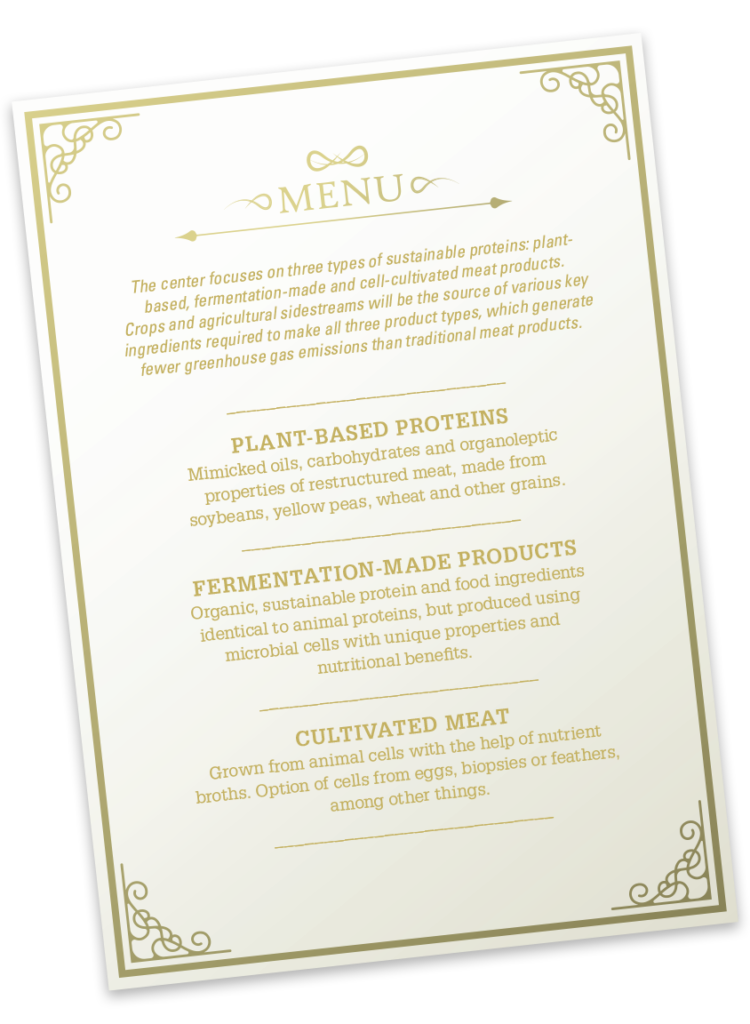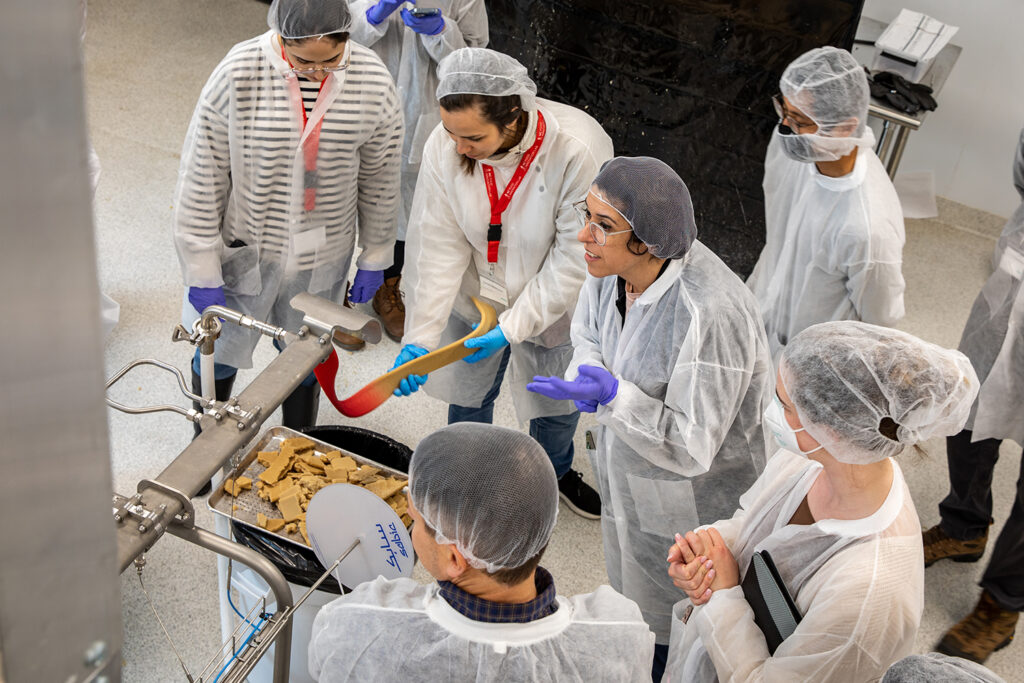Piecing Together the Protein Puzzle
As the global population increases, so does the demand for food.
To address this growing need, engineers, scientists, farmers, chefs and other stakeholders are investing more resources into alternative proteins, an emerging sector that shows promise as a supplement to traditional agriculture.
But while companies like Beyond Meat and Impossible Foods have received significant private venture capital, leading to advancements for specific technologies and products, public research on the fundamentals of alternative proteins has not received the same level of investment.
“There is a lot of opportunity for researchers at universities to look at some of the basic science and engineering behind creating these types of products,” said Rohan Shirwaiker, James T. Ryan Professor in the Edward P. Fitts Department of Industrial and Systems Engineering.
At NC State University, that opportunity recently received a major investment. The Bezos Earth Fund awarded the university $30 million to establish the Bezos Center for Sustainable Protein at NC State — one of three in the world, and the only one based in North America.

The goal? Create a biomanufacturing hub for dietary proteins. The center’s research will investigate the proteins’ environmental sustainability, nutrition, affordability and taste.
NC State has tremendous expertise in advanced manufacturing, biotechnology and food sciences — and leads agricultural and extension work in support of North Carolina’s agriculture industry, which generates more than $110 billion in annual economic impact. The university is well positioned to lead the center, which will support new research and technology development projects, develop education and training programs and offer community engagement events.
“If the alternative meats are plant-based, we must rely on farmers to grow and harvest crops used for protein extraction,” said Bill Aimutis, co-director and chief operating officer of the center. “As new areas emerge to biomanufacture proteins, such as precision fermentation and cell cultivation, traditional crops and by-products will supply the carbon and nitrogen-containing compounds essential for growth of microbial and mammalian cells.”
Aimutis co-leads the center — which is based in Fitts-Woolard Hall on Centennial Campus — with Shirwaiker, who also serves as chief science officer. Aimutis came to NC State from industry to serve as executive director of the NC Food Innovation Lab in the College of Agriculture and Life Sciences.
Located in Kannapolis, North Carolina, the lab accelerates food research, product development and commercialization, particularly for plant-based food innovation.
“North Carolina is one of very few states that is seeing investments in this area,” Shirwaiker said.
Shirwaiker has spent most of his career working on biomanufacturing processes related to biological products, including 3D-printing human tissue for organ and tissue transplants.
A few years ago, he started to explore how the basic techniques and fundamentals of medical tissue engineering could be applied to manufacturing alternative proteins such as cell-cultivated meats — and found that there are significant synergies.
“I’ve started looking at the development of new manufacturing technologies to process plant-based and cellular materials for emerging food products with the vision to achieve price parity with more traditional sources of meat and proteins,” he said.

His work pairs well with Aimutis’ research, which includes characterizing proteins’ physical functionalities and using their physiological bioactivities to prevent high blood pressure, gastrointestinal disorders and dental cavities. Aimutis also worked on twin screw extrusion, a critical processing technique for adding a meat-like texture into plant-based proteins.
“When I began working more with plant-based materials, the industry was beginning to formulate and promote plant-based meat alternatives,” he said. “Many of the functional properties I studied were important to the formulations.”
The two are leading academic partners — including North Carolina Agricultural and Technical State University, University of North Carolina at Pembroke, Duke University and Forsyth Technical Community College — as well as industry partners and community stakeholders from across North Carolina and the U.S. to work toward the center’s goal of developing sustainable alternative proteins.
Together, the center’s stakeholders will work to make these proteins tasty and something people will want to eat.
“Ultimately, we must educate consumers about proper eating habits of the varieties and amounts of proteins from all sources, animal, plant, microbial and cell-cultivated,” Aimutis said. “Accomplishing these many objectives and goals will provide food security in a sustainable manner for future generations.”
“Meat” the Team

The research and development team is improving existing and finding new materials to extract proteins or to use for fermentation and cell cultivation. Using advanced biotechnology, researchers are reducing costs and increasing the efficiency of the manufacturing process. They are working alongside other scientists and practitioners in the alternative protein domain to advance science and innovation and are cultivating strategies to facilitate technology transfer to industry.
The workforce development team is developing a diverse portfolio of education and training activities for students and professionals, while implementing programs that extend NC State’s Biomanufacturing Training and Education Center’s groundwork in pharmaceuticals to advanced food technologies.
The capacity building team is reaching out to community stakeholders such as consumers, farmers and chefs to understand their expectations. They will conduct workshops with industry members and create a sustainable protein boot camp for countries that will benefit the most from the environmental benefits of alternative protein technology.